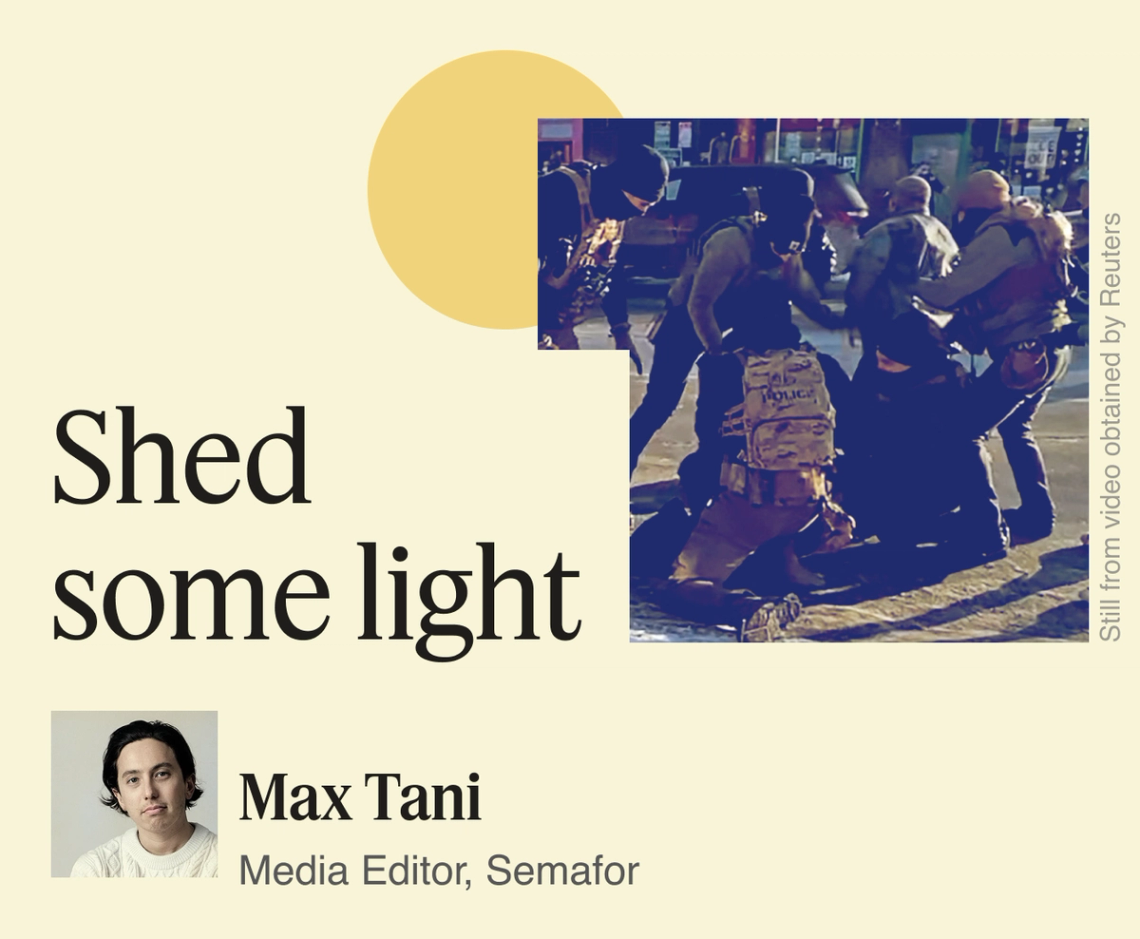 Illinois Gov. JB Pritzker told us on Mixed Signals last year that his primary tactic against the federal agents swarming Chicago was to “video everything.” “Video everything” has driven the media narrative and defined the situation in Minneapolis, where a second person was shot by immigration officers on Saturday. Almost as soon as the news was announced, high-quality videos of the shooting ricocheted around the internet. “The city had become a giant eyeball,” The New York Times Magazine’s Charles Homans wrote. And anyone on social media can see what it sees: The engagement-hungry platforms X, TikTok, YouTube Shorts, and Instagram Reels all revolve around short-form videos, and they’ve been flooded by angles of immigration enforcement actions across the country — and, now, a pair of deadly shootings. If you can watch what’s happening in Minneapolis for free, from a thousand angles, over and over, what’s left for The Minnesota Star Tribune, the state’s biggest news organization, to do? “We’re not trying to recreate social media,” editor and senior vice president Kathleen Hennessey told me yesterday during a phone call. “We’re trying to deliver what you’re not getting, which is names, dates, locations, the comment and account from ICE and from DHS, angles that you’re not seeing, what happened before, what happened after. Obviously the power of video in the story is real, but it is also limited, and we’re very aware of that every day.” “There’s lots of rumor and chatter and confusion, and there’s also just bad and incomplete reporting that’s flying around lots of outlets,” she said. “Not all of it is malicious, and some of it’s just strange. You cannot be an informed person and just sort of scroll through social media. It’s distorting and it doesn’t add clarity, I don’t think. Ultimately, that’s what journalism is in for. You need to shed some light and bring true understanding.” Also today: Layoff fears at The Washington Post and a dispatch from Davos. |